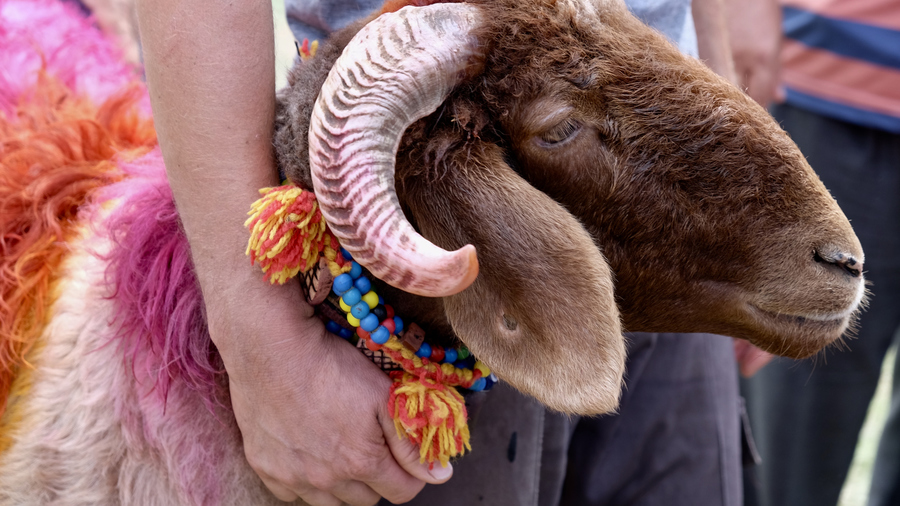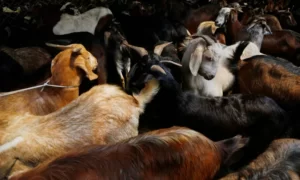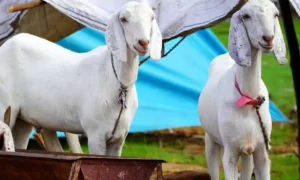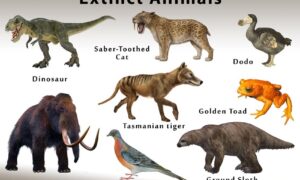Animal Sacrifice Eid: Understanding the Tradition and Ethics
Animal sacrifice has been an integral part of various religious and cultural practices throughout history. One such occasion where animal sacrifice holds immense significance is during Eid al-Adha, also known as the Festival of Sacrifice. This article aims to shed light on the tradition and ethics surrounding animal sacrifice during Eid, exploring its religious context, societal impact, and ethical considerations.
1. Introduction
Eid al-Adha, the second most significant festival in the Islamic calendar, commemorates the willingness of Prophet Ibrahim (Abraham) to sacrifice his son as an act of obedience to God. This sacred occasion is celebrated by Muslims worldwide, where they perform a range of religious rituals, including animal sacrifice.
2. The Significance of Eid al-Adha
Eid al-Adha marks the end of the Hajj pilgrimage, one of the Five Pillars of Islam. It symbolizes obedience, submission to God’s will, and a time for self-reflection, gratitude, and generosity. Muslims believe that the act of sacrificing an animal represents Prophet Ibrahim’s ultimate act of devotion and serves as a reminder of their own commitment to God.
3. The Ritual of Animal Sacrifice
During Eid al-Adha, Muslim families and communities slaughter an animal, typically a goat, sheep, cow, or camel, as an offering to God. The sacrifice must meet specific criteria in terms of the animal’s age, health, and well-being. It is essential to ensure a swift, humane, and painless slaughter by adhering to Islamic principles.
4. Religious and Cultural Context
Animal sacrifice is not unique to Islam and can be traced back to pre-Islamic traditions. It has historical and cultural roots in various societies worldwide, including Judaism and Christianity. Different cultures interpret and practice animal sacrifice differently, but the underlying concept of sacrifice as an act of devotion and connection with the divine remains prevalent.
5. Symbolism and Spiritual Reflection
The act of sacrificing an animal represents a willingness to give up something of value for a higher purpose. It symbolizes selflessness, surrendering worldly desires, and recognizing the importance of spiritual devotion. Through sacrifice, Muslims aim to demonstrate their gratitude, strengthen their faith, and seek spiritual purification.
6. Social Impact and Community Engagement
Eid al-Adha fosters a sense of unity and community as Muslims come together to perform the rituals and share the meat from the sacrificed animals with the less fortunate. This act of charity promotes social cohesion, empathy, and compassion, reinforcing the values of kindness, generosity, and solidarity within the community.
7. Ethical Considerations
While animal sacrifice is deeply rooted in religious and cultural traditions, ethical questions arise concerning the treatment of animals involved. It is crucial to ensure that animals are treated with respect, compassion, and dignity throughout the process. Islamic teachings emphasize the importance of minimizing the animal’s suffering and conducting the sacrifice in the most humane manner possible.
8. Animal Welfare and Humane Slaughter
Islam places a strong emphasis on animal welfare and humane slaughter. Islamic principles dictate that animals should be healthy, well-cared for, and slaughtered with a sharp knife to ensure a quick and painless death. Furthermore, Muslims are encouraged to minimize the distress experienced by the animal and to consume its meat responsibly.
9. Personal Responsibility and Compassion
Individuals partaking in animal sacrifice bear the responsibility of upholding ethical standards and ensuring that the sacrifice is performed in a compassionate manner. This includes providing appropriate living conditions for the animals, handling them with care, and involving trained professionals to conduct the slaughter following the prescribed guidelines.
10. Alternative Practices and Adaptations
In modern times, alternative practices have emerged to accommodate ethical concerns surrounding animal sacrifice. Some individuals choose to donate money to charitable organizations, allowing them to provide meat to the needy without sacrificing an animal directly. These adaptations reflect a desire to honor the tradition while addressing contemporary ethical considerations.
11. Criticisms and Debates
The practice of animal sacrifice has faced criticism from various quarters. Animal rights activists argue that it perpetuates cruelty towards animals and that alternative means should be adopted to express religious devotion. There are ongoing debates regarding the necessity of animal sacrifice in the modern era and the need to prioritize animal welfare while maintaining cultural traditions.
12. Balancing Tradition and Modern Values
Finding a balance between preserving religious traditions and adapting to modern ethical values is an ongoing challenge. Many religious communities and scholars engage in discussions to explore ways to minimize harm to animals while upholding the significance of the ritual. This ongoing dialogue ensures a nuanced understanding of the tradition and promotes ethical awareness.
13. Public Perception and Education
Enhancing public perception and understanding of animal sacrifice is crucial in dispelling misconceptions and addressing ethical concerns. Educating the public about the religious, cultural, and ethical aspects of the practice can foster empathy, respect, and open dialogue, leading to a more informed and nuanced discourse on the topic.
14. Conclusion
Animal sacrifice during Eid al-Adha holds deep religious and cultural significance for Muslims worldwide. It represents a tradition that has evolved over centuries, reflecting devotion, gratitude, and community engagement. While ethical considerations surrounding animal welfare are essential, adhering to Islamic principles of humane slaughter and personal responsibility ensures a balance between tradition and modern values.
15. FAQs
- Is animal sacrifice unique to Islam?
- What is the purpose of animal sacrifice during Eid al-Adha?
- How can animal welfare be ensured during the process of animal sacrifice?
- Are there any alternatives to animal sacrifice during Eid al-Adha?
- How can the ethical concerns surrounding animal sacrifice be addressed?
Read More:Animals and Humans: Exploring the Connection


















